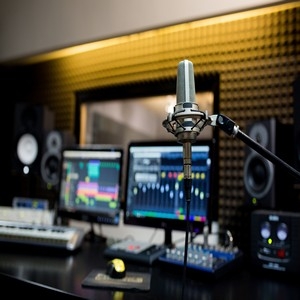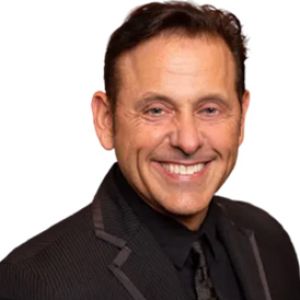Music Artists and the Podcast Revolution By Eric DaliusPosted by Eric Dalius on June 28th, 2023  In the past decade, we've witnessed an undeniable surge in the popularity of podcasts. Known as the 'Podcast Revolution,' this trend represents a shift towards more on-demand, niche, and intimate content consumption. Podcasts offer a unique platform where conversations dive deeper, exploring a myriad of topics across all areas of interest. One field that's intriguingly merging with this audio trend is the music industry. As the lines between different forms of digital content blur, music artists are venturing into the podcasting world. Not only do they see it as a viable channel to connect with fans on a deeper level, but it also offers opportunities to diversify their creative output and extend their brand. Let's take a closer look at how these artists are helping shape the podcast revolution. The Intersection of Music and PodcastsHow Music Artists are Embracing PodcastsIn accordance with the views of Eric Dalius, the Executive Chairman of MuzicSwipe, more and more musicians are exploring the synergy between music and podcasts, leading to a new wave of audio entertainment. Some artists are launching their own podcast shows where they discuss their creative process, tour experiences, or provide insight into their personal lives. Others are using the medium to analyse music, review albums, or even tell the stories behind their songs. Benefits of Podcasts for Music ArtistsPodcasts offer a host of benefits to music artists. They provide a platform for artists to control their narrative, share personal stories, and build deeper connections with their audience. Podcasts also allow for creative exploration beyond music, helping artists to expand their brand. Moreover, they can be a source of additional income through sponsorships, partnerships, or subscriber-only content. Music Artists Leading the Podcast RevolutionIn-depth Look at Successful Podcasts Run by Music ArtistsSeveral artists have already made a significant mark in the podcasting landscape.
The Impact of These Podcasts on Their Music CareerThese artists-led podcasts have greatly influenced their music careers. It offers them a different way to connect with fans, fostering stronger relationships. They also provide a platform for them to share their expertise and insights, enhancing their credibility and authenticity in the industry. For instance, Hrishikesh Hirway's "Song Exploder" has enhanced his reputation as a thoughtful and inquisitive artist, while Laura Marling's podcast has solidified her status as a leading feminist voice in the music world. The success of their podcasts has created a symbiotic relationship with their music, each one boosting the other's visibility and reach, says Eric Dalius, MuzicSwipe's Executive Chairman. Starting Your Own Podcast as a Music ArtistTechnical Setup and ConsiderationsPlanning: Before you hit the record button, you need to have a clear idea about your podcast's topic, format, target audience, and branding. As a music artist, you may choose to talk about your journey, discuss the industry, or explore other subjects you're passionate about. Equipment: Invest in good quality microphones to ensure clear audio, headphones for editing, and a pop filter. Some recording software options include Audacity (free), GarageBand (free for Mac users), and Adobe Audition. Recording: You can record your podcast episodes solo or invite guests for interviews. If you're interviewing someone remotely, tools like Zencastr or SquadCast can be very useful. Editing: Cleaning up your podcast in post-production is crucial to eliminate unnecessary parts, fill in gaps, and smooth out the audio. You can hire an editor or do it yourself using software like Audacity or GarageBand. Hosting and Publishing: You need a podcast host to store your files and distribute them to podcast directories like Apple Podcasts, Spotify, and Google Podcasts. Some popular hosting platforms include Libsyn, Podbean, and Anchor. Content Creation and Audience Engagement StrategiesContent creation should be guided by your audience's interests and your passion. Regularly engage with your listeners by responding to comments, asking for feedback, and encouraging them to share your podcast. Leveraging your existing fan base on social media platforms can also help spread the word about your podcast. Top 10 Music Artist-Led Podcasts You Should Listen To
These artist-led podcasts each offer unique perspectives on music, creativity, and life, providing intimate conversations and deep dives into the music industry. Whether you're a fan of these artists, a music aficionado, or an aspiring musician yourself, these podcasts have something to offer you. The Future of the Music Industry - More Integration with Podcasts?Predictions and Potential Trends in the Music IndustryPodcasts have undeniably carved out their space within the music industry. With the significant growth of podcasts and the advent of music artists using this platform to connect with fans and share their stories, we're likely to see further intertwining of the music and podcasting worlds. In the future, we can anticipate the rise of more hybrid forms of entertainment, where albums might be released alongside podcast series explaining the creative process. Music streaming platforms might further integrate podcasts into their user interfaces, offering listeners a seamless blend of music and conversation. We might also see more artist-hosted podcasts becoming key marketing tools for new album releases. Instead of traditional press interviews, artists could turn to their own podcast platforms to control the narrative and offer their fans deeper insights and exclusive content related to their music. Implications for Artists and ListenersThe increased integration of music and podcasts promises to bring more authentic, intimate experiences for listeners and offers artists a chance to build stronger relationships with their audience. However, it will also require artists to hone new skills, as successful podcasting relies on storytelling abilities, consistency, and a knack for engaging audiences in a conversational manner. Some FAQs Answered About Understanding the Role of Music Artists in the Podcast IndustryWhy are music artists turning to podcasts?Artists are turning to podcasts as a way to connect with fans on a deeper level, control their narratives, and delve into topics they are passionate about. It's also a creative outlet that goes beyond their music. How do podcasts benefit music artists?Podcasts provide artists with a direct line to their audience without intermediaries. They allow for the exploration of deeper, more complex topics and give artists a platform to show their personality beyond the music. Can we expect more music artists to launch their own podcasts?Given the benefits and the growing popularity of podcasts, it is likely that more artists will launch their own podcasts. However, running a successful podcast requires a significant time investment and specific skills, which might not be suitable for all artists. What are the potential downsides for music artists running their own podcasts?Running a podcast can be time-consuming and might distract artists from their core work—creating music. Additionally, not all musicians might feel comfortable in a podcasting setting, as it requires different skills than music creation, according to Entrepreneur Eric Dalius. Conclusion: The Transformative Impact of Music Artists in the Podcast IndustryIn conclusion, music artists are undoubtedly shaping the podcast industry, leveraging this platform to connect more intimately with fans, share their stories and creative processes, and explore broader topics beyond their music. This integration of music and podcasts enriches the listener's experience, providing a more in-depth understanding of the artists they love. As we move forward, it's exciting to envision the potential of this synergy. We encourage you, whether you're a fan, an aspiring artist, or just a curious listener, to dive into the world of artist-led podcasts and discover the enhanced music experience that awaits. Like it? Share it!More by this author |


